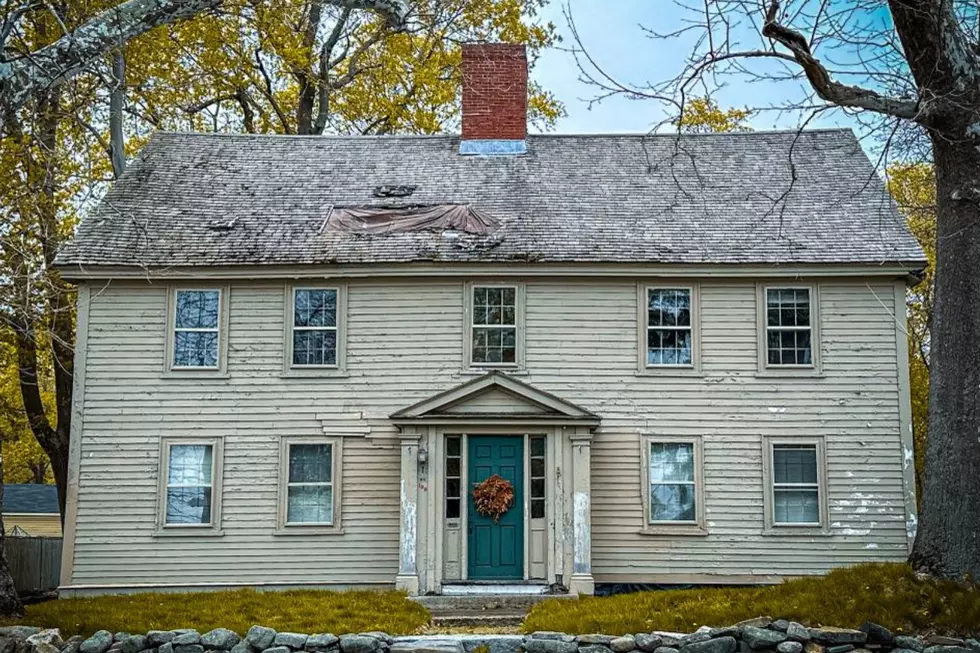
Danvers Town Meeting Approves Bylaw to Save Historic Witch Trials Tavern
DANVERS (WBSM) — The townspeople of Danvers, Massachusetts took the next step Monday night in preserving an historic tavern that played a key role in the Salem Witch Trials 332 years ago.
Nathaniel Ingersoll’s Tavern, originally known as Ingersoll’s Ordinary, was built in 1670 and became a tavern in 1677. It played an important role in the 1692 Salem Witch Trials. Not only was it the center of all activity in Salem Village, it was also where the first three accused of witchcraft – Tituba, Sarah Osborne and Sarah Good – were held as prisoners.
“It went on to hold about 30 more people accused of witchcraft,” Ingersoll’s advocate Dani October said in an April appearance on WBSM. “Not only did it hold the people, but downstairs, so much happened. There are so many incredible stories from the Witch Trials that happened downstairs as well.”
In between meetings regarding the accusations of witchcraft, the magistrate, the townsfolk and even the girls allegedly afflicted by the witchcraft would all come to the tavern to discuss what was happening.
However, it has fallen into disrepair in recent years and is currently sitting empty with a large hole in the roof.
READ MORE: Salem Witch Trials Site Ingersoll's Tavern in Danvers in Danger of Being Lost to History
During Danvers’ annual Town Meeting on May 20, the 149 elected members voted to pass a proposed “demolition by neglect” bylaw that would force its owner to make necessary structural repairs to keep the tavern from further deterioration.
The bylaw was suggested back in March by the Ad-Hoc Historic Preservation Study Committee. The committee pointed out in its report that there was never a need for such a bylaw until the issue arose of Ingersoll’s Tavern, saying it has “potentially the strongest ties to the 1692 Salem Village Witch Hunt out of all structures still standing in Massachusetts.”
“This house was purchased in 2011 by a New Hampshire resident who has never lived in the house and has left it vacant for almost 13 years. The home has no electricity or heat, and has had a hole in the roof for five years due to storm damage that was never repaired,” the report stated.
READ MORE: The Danvers Ad-Hoc Historic Preservation Study Committee Report
“The owner has made no repairs at all to the exterior of the house in over a decade, and allowed the 1600s barn on the property to deteriorate until it collapsed due to neglect,” the report continued. “Unfortunately, if action is not taken, this historically significant house itself is likely to continue to deteriorate until it will need to be condemned and demolished.”
The bylaw is “narrow and focused so as to be used rarely,” and only applies to the most significant structures, and would require that the building is vacant, only apply to the frame and roof, and requires the “due process of a public meeting” before being triggered.
At that point, the Building Commissioner would “attempt to negotiate a voluntary agreement with the property owner” to have the repairs made, and if that is not possible, the Building Commissioner would “be able to directly order certain structural repairs, and this could only be enforced if a state court concurred.”

October called the Town Meeting approval of the bylaw “wonderful news” in a Facebook post.
“This means the current owner cannot let this important historic structure to the Salem Witch Trials simply decay into the ground by neglecting to upkeep and preserve the property on his part, which was what was currently happening,” October wrote.
“This new law, which was badly needed, will save this house from being lost. Now the owner must preserve the home, or be forced to sell it to someone who will,” she wrote. “Any new owner will also be obliged to upkeep, preserve, and restore the property, maintaining its historic significance.”
October said previously that she was told the owner would be interested in selling the property provided it was not going to be used for a private residence. Aaron Henry, Director of Land Use & Community Services for the Town of Danvers, told WBSM in an April email that his office had heard the owner “is interested in turning the Tavern into a museum,” but that nothing has been done on that front.
“Over the years, we have communicated with the owner about the Tavern's condition, but unfortunately, there has been little to no progress in ensuring that the structure doesn't fall into further disrepair,” Henry wrote. “Our primary concern is the hole in the roof and similar issues that could lead to rapid deterioration if left unchecked.”
“The Town believes it has exhausted almost all options to preserve the Tavern. As a result, we have asked our Health Director to contact the Attorney General's Office to understand how the Abandoned Housing Initiative Receivership program may help us,” he wrote.
Danvers Historical Society President David McKenna posted in the Save Ingersoll’s Tavern Facebook group that he had a two-hour meeting with the owner on Tuesday morning and that the owner “ is still desiring to have it preserved as a museum/memorial to the victims of the witchcraft delusion.”
“He is now agreeable to having an apartment for a live-in caretaker/overseer,” McKenna wrote, noting that while the owner would like to see a nonprofit organization take control of the property, the Historical Society does not “have the bandwidth or financial capacity to take on another building, especially one needing this much restoration.”
Who Were the Victims of the Salem Witch Trials?
Gallery Credit: Meg
Grab Your Broom and Visit These 11 Popular Shops in Salem, Massachusetts
Gallery Credit: Meg
More From WBSM-AM/AM 1420








![Westport Elementary Staff Sends Students into Summer with Catchy Reading Song [VIDEO]](http://townsquare.media/site/519/files/2024/06/attachment-Untitled-design-216.jpg?w=980&q=75)
